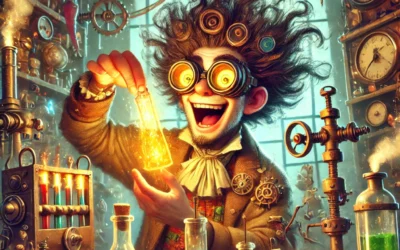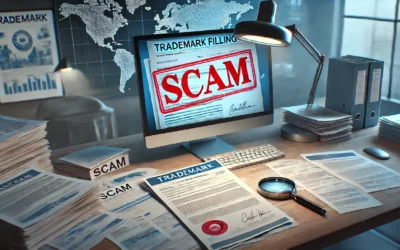Many celebrities have their share of trademark troubles when trying to register EU trademarks. Here are some famous cases.
Lionel Messi
Lionel Messi is the owner of 9 EU trademarks. However, for one of his marks, it took 10 years to get the registration through. So what happened?
Messi filed a trademark application for a logomark MESSI (below) in 2011. The application covered clothing and sporting goods, among others.
Spanish company J.M.-E.V. E HIJOS, S.R.L., owner of prior trademarks MASSI opposed the registration. EUIPO’s opposition division and Board of Appeal agreed with J.M.-E.V. E HIJOS, and refused Messi’s application because it was confusingly similar to earlier trademark MASSI. In the end, the EU court allowed registration. It held that Messi is so famous, that there was no chace that his name could be confused with the name Massi. The decision is open to criticism in that it gives public figures options that are not available for others.
The Messi case has later been successfully used by Miley Cyrus, who managed to register her name despite earlier trademark Cyrus. That case was also decided by the EU court. These are noteworthy cases because the exceptional fame of Messi and Miley Cyrus meant that that their names could not be confused to prior trademarks. This is controversial, because normally the fame of the later trademark is a consideration that cannot be taken into account. EUIPO has stated that the reputation of the applied mark is an irrelevant argument. This principle does not seem to apply equally to all applicants.
Maradona
The case involving Maradona is also not your typical case. Here’s what happened. Before Maradona died, he signed an agreement with his lawyers, giving their company, Sattvica, full rights to commercially exploit Maradona’s name, image and trademarks. After his death, Sattvica tried to transfer and get legal ownership of the MARADONA trademarks. The EUIPO accepted the transfer, but Maradona’s heirs objected, saying that the documentation signed by Maradona before he died did not authorise the transfer of ownership of the trademark registrations.
After some back and forth, the EU court ruled that the documentation was insufficient, and since Maradona was already dead, the insufficiencies could no longer be corrected by making new documents. As a consequence, the trademarks belong to the heirs of Maradona, not to Sattvica.
The case highlights the importance of proper documentation. If a person dies, or a company goes bankrupt, it is extremely difficult to deal with their trademark registrations if proper documentation does not exist. Amending and modifying documentation is not possible.
Pablo Escobar
Pablo Escobar’s brother, co-founder of Escobar Inc., filed for an EU trademark PABLO ESCOBAR in 2021. The EUIPO refused registration on the grounds of it being against public policy and accepted principles of morality. EUIPO’s practice is to reject trademarks that refer to drugs or crimes.
The applicant, Escobar Inc., tried arguing that Escobar was never convicted of the crimes relating to narco-trafficking, and that he actually did many good things for the poor people of Colombia. He was, according to the applicant, a mythical figure similar to Robin Hood.
The EUIPO had none of that, saying that the general public associates the name PABLO ESCOBAR with drugs, crimes and violence, and therefore it would not be prudent to grant a trademark for that name. The fact that the trademark refers to a criminal is not necessarily conclusive. Unlike Escobar, the first two people on the list, Lionel Messi and Diego Maradona have both been convicted of crimes. Messi for tax fraud, and Maradona for drug possession.
Jose Mourinho
Jose Mourinho’s case is perhaps the strangest. After he was signed as the Chelsea FC manager in 2004, the club registered his name and signature as an EU trademark. Once the “Special One” was no longer special enough for Chelsea owner Abramovich, Manchester United hired him. The negotiations, according to BBC, were held-up over the image and name rights of Mourinho. Since Chelsea was the owner of trademark MOURINHO, Manchester United could not sell MOURINHO -branded merchandise without Chelsea’s consent.
It is not publicly known what kind of an agreement Chelsea and Manchester United came up with, but the trademark JOSE MOURINHO is still owned by Chelsea FC to this day.
It is very common for sports figures to trademark their own names. When Cristiano Ronaldo moved to Juventus in 2018, the club sold more than half a million jerseys with his name in the first 24 hours (that’s more than 60 million EUR in revenue). Sporting figures are global brands, and their names are worth millions, sometimes hundreds of millions. It is only logical that they are protected with trademarks, just like other valuable brands. However, Mourinho’s case is unique, since the rights to the name are still owned by his former employer.
Neymar
Continuing with footballers, Neymar has also been exposed to EU trademark troubles.This case, which went all the way up to the EU courts, involved a trademark registration made by a Portuguese individual. He applied several trademarks making references to Neymar, including marks NEYMAR and NEYMAR FOOTWEAR. They were originally registered by EUIPO, regardless of the fact that the applicant has nothing to do with the footballer Neymar. The registrations covered clothing, footwear and headgear.
Upon learning about the existence of these registrations, Neymar started cancellation proceedings against the registrations, claiming that the applications were made in bad faith to unfairly benefit from Neymar’s fame and reputation. The EU court agreed, saying that there was no convincing rationale for the trademarks other than to benefit commercially from Neymar’s reputation.
One aspect that also weighed against the registrant was the fact that he had also registered trademarks consisting of the name of another famous footballer, IKER CASTILLAS.
Lewis Hamilton
Lewis Hamilton, the famous Formula 1 driver, has had several trademark disputes with the Swatch Group. Hamilton watches have been around for more than a hundred years, i.e. slightly longer than Lewis. These two have been at loggerheads on several occasions. Lewis once tried to cancel the Hamilton trademark claiming that it was filed in bad faith, but this was not accepted.
In 2015 the company that manages Lewis Hamilton’s intellectual property matters, 44IP, filed an EU trademark application for LEWIS HAMILTON. Hamilton International (the watch company, part of the Swatch Group) opposed the registration of LEWIS HAMILTON trademark for watches. The driver tried the same argument that Messi had previously used successfully, claiming that he (Lewis Hamilton) was such a known person, that he could not be confused with the watchmaker. The EUIPO disagreed, and issued a statement “Lewis Hamilton is not famous enough to neutralise any similarity with ‘HAMILTON’”. In its decision, it noted, for example, that Messi’s social media following was about 17 times higher than Lewis Hamilton’s.
Sports personalities must always take into consideration that in many cases there are other persons and companies with the same name, and they might have equal desire to use their own name in commerce. Sometimes these other people might not be famous at all, but their name is just as important for them.
Sometimes there can be many famous persons with the same name, as with Brazilian and Portuguese footballers called Ronaldo. Trademarks operate on “first to file” basis, meaning that the one who is the first to file an application gets the rights, unless it can be established that the application is filed in bad faith or there are other factors that make the application vulnerable.
If a company or a person registers their own name, it will be difficult to argue that it is made in bad faith. In that case, the famous sports person might face the situation that he or she cannot use his name commercially.
Banksy
Banksy is the pseudonym behind a famous artist. His identity is not known, and he wants to keep it that way. Because of this, he cannot effectively use the copyrights he owns in his works to prevent others from ripping him off.
His artwork is often used in many different types of merchandise. He could bring copyright claims against such use, but that would require him disclosing his identity as the owner of the copyright. To deal with this conundrum, he has registered many of his most famous pieces as EU trademarks.
Several of his trademarks have been cancelled for bad faith. These include “Love Rat” and “Flower Thrower”. These registrations were invalidated because of Banksy’s statements that he had no intention of commercialising the works, and he had only used the trademarks in order to avoid their cancellation for non-use.
The EUIPO decided that obtaining exclusive rights for the works for reasons other than to sell goods or services amounted to bad faith. On the other, Banksy’s other works, like the Monkey, have been found having been filed without any bad faith. While there was some effort on the part of EUIPO to try to distinguish these cases from each other, the distinctions were not really credible.
The fact is that the decisions were simply inconsistent. It is not plausible some of Banksy’s works were filed as trademarks in bad faith while others were not. None of Banksy’s cases went to EU courts, so there is no higher instance decision on whether Banksy abused the EU trademark system with his applications.
Conclusion
Many of the issues highlighted above are not very typical. However, some important lessons can be learnt from them:
1. Register your trademarks as early as possible. If somebody registers a similar name, you might be prevented from using your name commercially.
2. Make sure you have the documentation in order. If a company goes bankrupt or the owner dies, it will be difficult to deal with the registrations if documentation is not in order.
3. The owner is extremely famous, like Messi, he can get preferential treatment. As Lewis Hamilton found out, the bar is extremely high.
See also
Messi turns EU’s top judges into giggling fanboys
Trademark PABLO ESCOBAR – no presumption of innocence
Trademark saga of DIEGO MARADONA




